Has the introduction of new technologies created or destroyed jobs in the past? How does the current technology cycle, led by artificial intelligence, differ from previous ones? What can we expect for the future of work? We brought together six experts to discuss these and other issues in the first episode of It’s Worth Asking- Digitalization and Work.
Experts interviewed: ÁLVARO COMIN: Professor at the Department of Sociology at the Faculty of Philosophy, Letters and Human Sciences at USP and researcher at the Center for Artificial Intelligence (USP-Fapesp-IBM), where he coordinates the research group “Digital Labor Markets”. He is a member of the CNPq research group “Artificial Intelligence and Society”. He was President of the Centro Brasileiro de Análise e Planejamento (2005-2008) and Professor at King’s College London (2011-2014). A historian, he holds a master’s and doctor’s degree in Sociology from USP, with a post-doctorate at the Institute for Employment Research at the University of Warwick.
ANA PAULA CAMELO: Research leader and project manager at the Innovation Teaching and Research Center (CEPI) at FGV DIREITO SP. PhD in Science and Technology Policy from the Universidade Estadual de Campinas (Unicamp). She held a Post-Doctorate at the Centro Brasileiro de Análise e Planejamento (CEBRAP). Master in Scientific and Cultural Dissemination by Unicamp.
DORA KAUFMAN: Professor of the Intelligence Technologies and Digital Design Program at the Faculty of Science and Technology at PUC-SP and columnist for Época Negócios. She is the author of the books O despertar de Gulliver: os desafios das empresas nas redes sociais (Media XXI, 2017), A inteligência artificial irá suplantar a inteligência humana? (Estação das Letras e Cores, 2019), and Desmistificando a inteligência artificial (Autêntica, 2022). Economist, she is a Postdoctoral fellow in the Production Engineering program (UFRJ) and Postdoctoral fellow in the Intelligence Technologies and Digital Design Program (PUC-SP).
GLAUCO ARBIX: Full Professor at the Department of Sociology at USP and coordinator of the Humanities area at the Center for Artificial Intelligence (USP-Fapesp-IBM) and the Observatory for Innovation and Competitiveness at the Institute for Advanced Studies at USP. He was president of Finep (2011-2015) and IPEA (2003-2006). A sociologist, he holds a PhD in sociology and a postdoctoral degree in Innovation Technology from the Massachusetts Institute of Technology (USA).
JOSÉ PASTORE: Professor at the Faculty of Economics and Administration and at the Fundação Instituto de Administração, both at the Universidade de São Paulo. He is a researcher at the Fundação Instituto de Pesquisas Econômicas and a consultant in labor relations and human resources. Sociologist, he is Doctor Honoris Causa in Science and Ph.D. in sociology from the University of Wisconsin (USA).
OLIVIA PASQUALETO: Professor of Labor and Social Security Law at FGV Direito SP. She also works as a researcher at the Center for Teaching and Research in Innovation at FGV and at the FGV Cidades study center. She was a consultant to the International Labor Organization. She holds a Doctorate and Master’s Degree in Labor Law from the Faculty of Law of USP. Check out the other videos of the season: #1 Technology and work: will the future repeat the past? # 2 Work of the Future: Digitization and the Brazilian labor market # 3 Beyond employment: strategies for a less unequal future The video series has optional subtitles in Portuguese, English and Spanish that can be activated in the settings. Discover the other seasons of It’s Worth Asking: Season 1: Artificial Intelligence, Democracy and Public Policy Season 2: The relationship between State and Religion Direction, production, research, script and editing: Beatriz Kipnis and Isabel Penz Editing: Isabel Penz Capture and colorization: Fabio Furtado Photography and camera assistant: Pedro Balmant Images and videos (other references are indicated on the screen): Conquer by the Clock/Prelinger Archives/Public Domain Ministry of Information Photo Division Photographer/Wikimedia Commons/Public Domain When the Circuit Breaks/Prelinger Archives/Public Domain






Deixe seu comentário